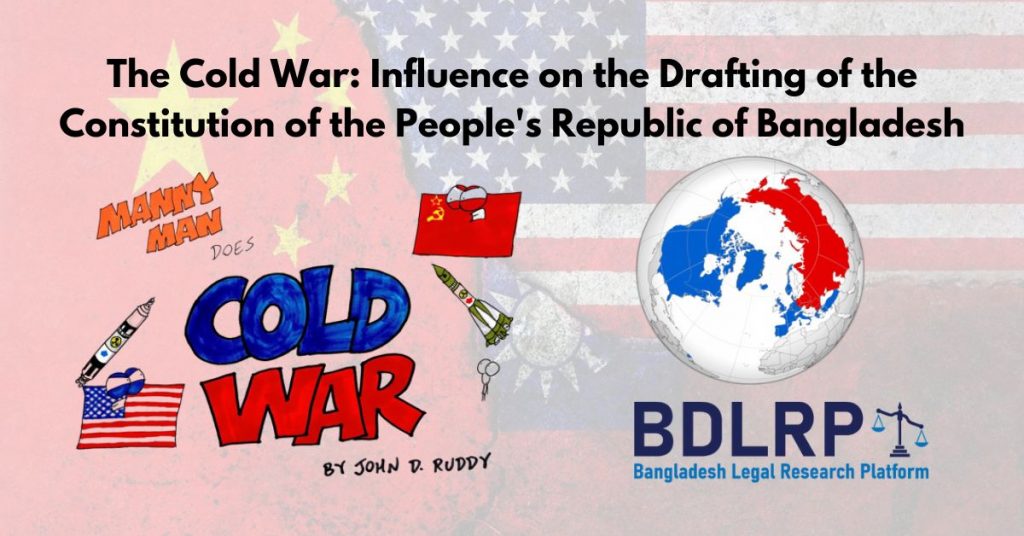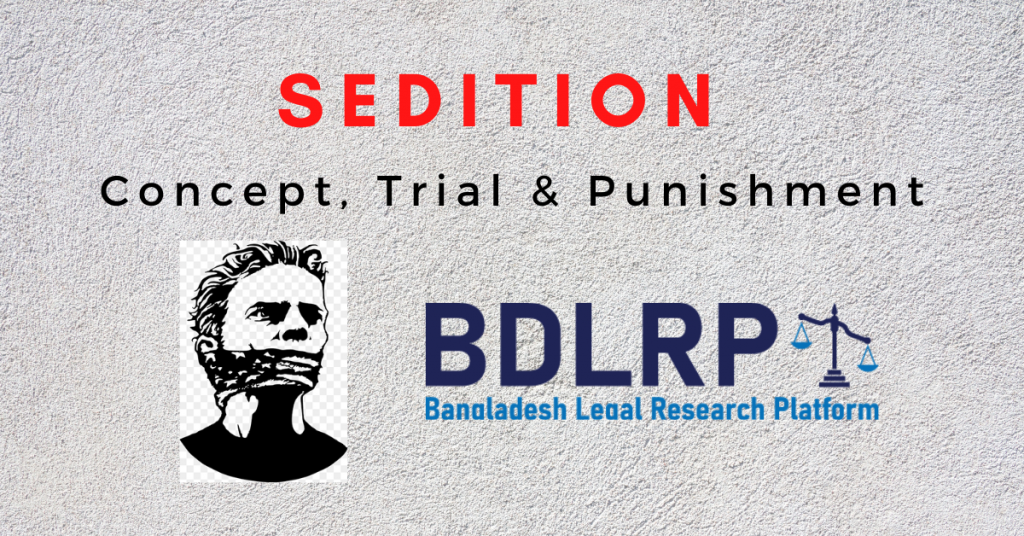Bangladesh’s Constitution is the product of a protracted struggle and unparalleled bloodshed. The country’s highest law presides over all other local statutes in the State. It serves as a representative of the republic’s unitary parliamentary constitutional democracy to the rest of the globe. Little has been said about the Cold War’s impact on formulating the People’s Republic of Bangladesh’s Constitution. Many would argue that the cold war has no logical bearing on this problem and should not even be discussed when debating the Constitution’s framing. Specific data may be used to aid in the analysis of this concept.
Cold War, the open but restrained hostility emerged between the United States and the Soviet Union and their respective allies. The Cold War was primarily fought on political, economic, and propaganda fronts, with little reliance on weaponry. From the ground up to the great altitudes of deep space, the USA and the USSR were rivals.
The space race is an excellent illustration of this. The Space Race resulted in pioneering artificial satellites, robotic space missions to the Moon, Venus, and Mars, and human spaceflight in low Earth orbit and eventually to the moon. One major victory occurred in favor of the United States of America when John F. Kennedy’s goal of men landing on the moon’s surface was realized with the Apollo 11 mission led by Neil Armstrong. And not just in space, also economically, politically, and in the majority of other areas, the USA was constantly one step ahead of the USSR. This brings us to the crux of the matter.
The United States of America is a capitalist nation. On the other side, the Soviet Union, which collapsed in 1991, was a socialist state. Socialism’s methods are opposed to capitalism’s. It is widely known that Bangladesh’s Constitution has aspects of both socialism and capitalism. The primary issue is whether one has been emphasized more. Part II of the Constitution establishes the Fundamental Principles of State Policy, including economic, social, and cultural rights. This section embodies socialism. They are not, however, rendered legally binding.
On the other hand, Part III of the Constitution includes Fundamental Rights, which has eighteen civil and political rights judicially enforceable under the Bangladeshi Constitution. Violation of any fundamental constitutional right coined in the Constitution entitles any citizen of Bangladesh to file a writ petition at the High Court division of the Supreme Court of Bangladesh under its Article 102. Thus, one might argue that the Bangladeshi Constitution prioritizes capitalism above socialism. During Bangladesh’s independence struggle in 1971, the USSR came to Bangladesh’s assistance, not the USA. Then why would Bangladesh not make economic, social, and cultural
rights judicially enforceable, as was the case with the USSR’s implementation of socialism?
First, a state must be economically powerful to enforce economic, social, and cultural rights via the courts. Bangladesh was nothing more than a destroyed land with a deplorable economy in the immediate aftermath of the war. Thus, it was implausible to make socialism’s economic, social, and cultural rights judicially enforceable when the Constitution was drafted. Another factor for the Cold War’s impact on the Bangladeshi Constitution formulation was the capitalist USA’s victory over the socialist USSR. Bangladesh needed the best biased Constitution as a newly born state, and the outcome of the cold war paved the way for the Bangladeshi Constitution to be capitalism biased.
While the Bangladeshi Constitution is visually more capitalistic, the socialistic rights stated in it are a component of its basic structure, which is safeguarded by Article 7B and cannot be amended in any way. The High Court Division of the Supreme Court of the People’s Republic of Bangladesh ruled in Kudrat-E-Elahi Panir vs. Bangladesh (1992) that, although basic principles are not enforceable in the Court, a directly opposed legislation to or negates one of them may be deemed invalid. Thus, it seems that basic principles may be used to declare a statute invalid for direct contradiction. It demonstrates that the Bangladeshi Constitution has maintained a balance and uniquely included socialistic rights. This essay aimed to demonstrate the under-reported and under-analyzed effect of the cold war on formulating one of the world’s most beautiful democratic-republican constitutions.

Author: Md. Sk. Shoaib-Bin-Habib (Nahin)
Law Discipline (LL.M.),
Khulna University.





Comments are closed.